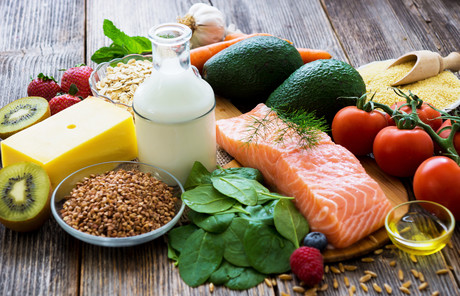Consumer confusion: what foods are healthy?

Dietary trends and nutritional advice are constantly changing and it can be difficult to keep up with. So it comes as no surprise that a survey conducted by New Nutrition Business found that consumers are unsure about what to believe and where to go to get accurate information.
Out of the 2000 consumers surveyed in the UK, US, Spain and Australia, 79% said they find messages surrounding health, food and nutrition confusing. Consumers are particularly unsure about items such as dairy, eggs and butter. Ultimately, it comes down to working out which foods are deemed healthy.
“Consumers in the UK, and worldwide, are confused about whether certain foods are healthy or not. Online sources are their go-to place for dietary information, where they often find contradictory advice. So, they pick and choose a dietary pattern that they believe suits them best and craft their own eating style,” said Joana Maricato, research manager at New Nutrition Business.
With a plethora of information readily available on the internet at a click of a button, 34% of consumers are turning to online sources as opposed to professional dietitians and nutritionists. This can be at least partly down to the fact that consumers no longer trust official dietary guidelines.
The results from the survey demonstrate this, with 11% of consumers choosing a documentary as their source of information, and only marginally more (14%) actually asking a dietitian for advice. This is especially true of consumers in Spain, where 46% choose to go online for their health information.
However, consumers agreed that sugar was unhealthy and their diet should therefore include less sugar. 86% of consumers in the UK believe sugar is bad for their health and 89% said they would like to reduce their daily intake of sugar. But what sugar are they referring to?
Avoiding obviously sugary foods such as confectionery would be a fairly simple task, but consumer confusion is especially strong in this area as there have been several different sources suggesting there are “hidden sugars” in foods we would not suspect. These include pasta sauces, granola and yoghurt, and the survey found that 46% of UK consumers believed fruit juice was “high in sugar”.
But not all sugars are necessarily bad for you, as fruits have low levels of naturally occurring sugars. The survey revealed that some of consumers’ beliefs about food are directly at odds with what nutrition science says, such as the idea that brown sugar is healthier than white sugar (50%).
Overall, it comes down to consumers not understanding what ingredients are in certain foods, and how they interpret dietary recommendations that regularly change. Consumer uncertainty would be better addressed with more consistent information about healthy and unhealthy foods, and by building trust with reliable sources such as nutritionists.
AFGC reviews progress on food and grocery manufacturing targets
In its latest food and grocery manufacturing sector report, AFGC reflects on the...
$15m AI space project to help boost Australian agriculture
The Australasian Space Innovation Institute is developing an AI-enabled geospatial national...
Barry Callebaut opens chocolate innovation centre in Singapore
The Callebaut Global Innovation Center is helping to advance the future of chocolate and cocoa...











